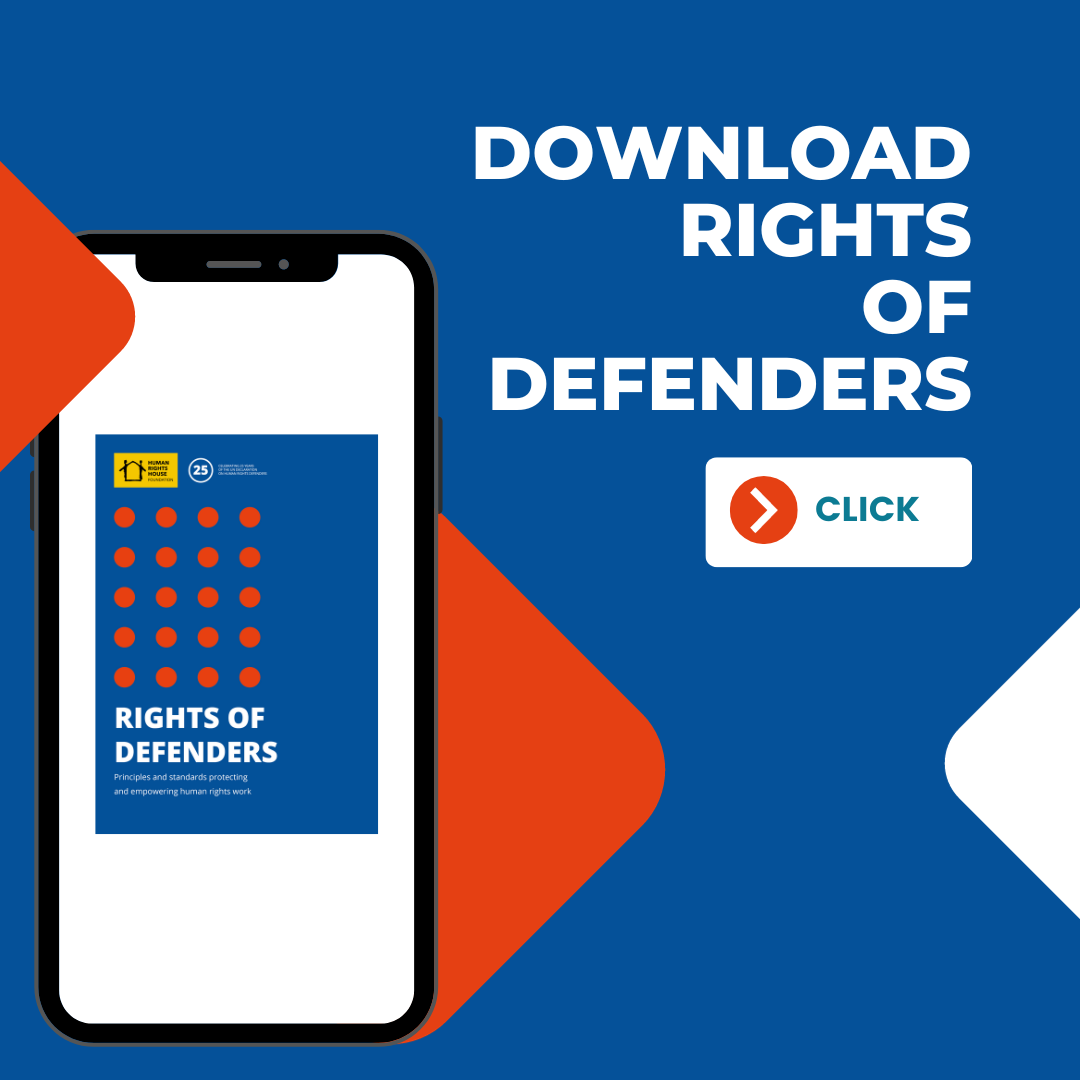
Rights of Defenders
HRHF’s Rights of Defenders booklet identifies 20 standards related to the rights of human rights defenders. These 20 standards are informed by the UN Declaration on Human Rights Defenders and relevant landmark international resolutions.



Download Rights of Defenders
In 2023, Human Rights House Foundation relaunched the Rights of Defenders booklet. It coincided with the 25th anniversary of the 1998 UN Declaration on Human Rights Defenders and updated work we published in 2018. The Rights of Defenders booklet identifies 20 standards related to the rights of human rights defenders. These 20 standards are informed by the UN Declaration on Human Rights Defenders and relevant international resolutions.
The Rights of Defenders booklet is also available in Ukrainian.
The Rights of Defenders booklet – developed by Human Rights Houses and HRHF – is based on the idea that, for effective domestic implementation of international standards, it is essential that human rights defenders know and understand their rights
The booklet promotes and builds understanding of international standards and provides clear, accessible, and targeted insight into the standards and the context that surrounds them. It is a tool for defenders to disseminate standards nationally, engage with authorities and hold them accountable to the commitments they make internationally, and initiate national conversations on the importance of defenders and their work.


